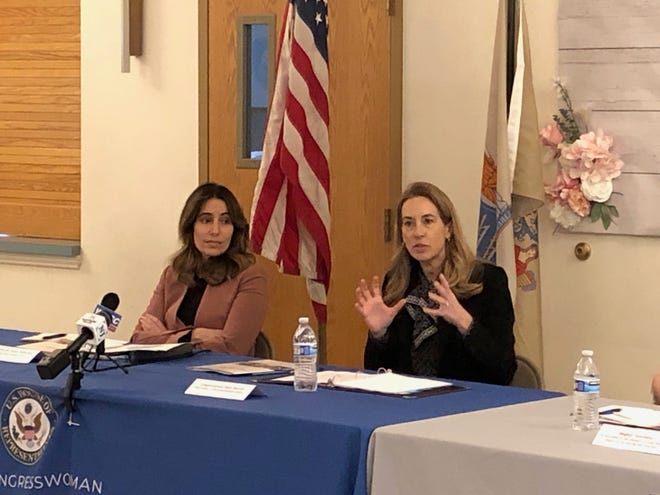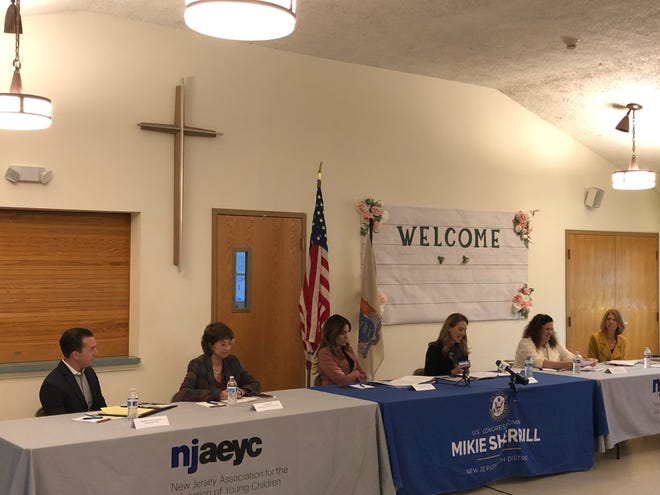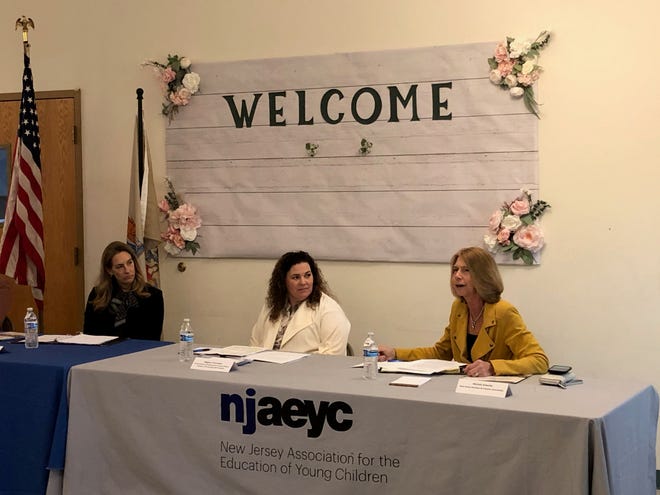CHATHAM — Advocates of increased child care say access to more affordable programs would be good for the entire population, but that hasn’t produced a solution to a shortage that costs billions in lost productivity.
On Monday, a panel of legislators and early childhood education workers highlighted the factors contributing to what U.S. Rep. Mikie Sherrill called the “child care crisis” and discussed ways to reverse the trend.
The hourlong discussion at the Learning Path Preschool in Chatham was organized by Sherrill and New Jersey state Senate Majority Leader Teresa Ruiz, both Democrats. Speakers cited the exorbitant cost for parents and a labor shortage in day care as the two main reasons families struggle to find adequate help with young children.

Monday’s panel coincided with the annual Week of the Young Child, held this year from April 1 to 7. The week, organized by the National Association for the Education of Young Children, aims to direct public attention to the needs of children and families while highlighting services that meet those needs.
“We cannot forget how essential this industry is,” said Cynthia Rice, senior policy analyst of the nonprofit Advocates for Children of New Jersey. She added that securing funding and enacting legislation “will finally help us steer child care into a direction that treats it, really, as the public good it is.”
To work or stay at home?
Sherrill, who represents New Jersey’s 11th Congressional District, found herself “on the brink” of leaving her career 17 years ago to raise her children rather than continue to pay for child care. Had she done so, she said Monday, “I don’t think I would be in Congress right now.”
Many working parents, especially women, find themselves facing the same difficult decision today, she said. More than 1.8 million women left their jobs during the COVID-19 pandemic, Sherrill said. Many cited the lack of child care as their reason for returning to the workforce slowly or not at all.

$122 billion in lost revenue
Child care providers, meanwhile, are often unable to pay adequate wages, panelists said. This causes teachers to leave the profession and results in empty classrooms despite long waitlists at centers like The Learning Path, Rice said.
Michele Siekerka, CEO of the New Jersey Business and Industry Association, cited a study that found 85% of primary caregivers feel that concerns about child care have affected their productivity at work. In total, the cost of the crisis nationally has more than doubled to $122 billion in lost parental incomes, business output and tax revenue since 2018.
Sherill, Murphy take steps
Sherrill and Ruiz are among the lawmakers looking to enact legislation to improve the situation. The Child Care for Every Community Act, introduced in the House by Sherrill, would fully subsidize child care costs for most families and ensure that wealthier households pay no more than 7% of their income.
Under the bill, a New Jersey family making $130,000 a year with an infant and a 2-year-old would pay no more than $10 a day or $200 per month, well below the current average cost of $2,635 per month.

The bill’s fate remains uncertain, however, with the House now controlled by Republicans who have pushed for spending cuts, not the addition of a new subsidy program.
Another bill, introduced in the state Legislature last week, would make all child care workers eligible for subsidies, Rice said. And last year, Gov. Phil Murphy signed a law establishing the Thriving by Three grant program expanding services for infants and toddlers up to 2½ years old.
Looking for more resources
Meghan Tavormina, The Learning Path’s executive director and president of the New Jersey Association for the Education of Young Children, knows the difficulties of running an understaffed child care center for parents who struggle to afford it. She is optimistic that discussions like Monday’s panel will improve the situation for both groups, and for the community as a whole.
“It’s my hope that with collaboration between our local, our state and our federal resources and dollars, we can very quickly change the way that we pay this critical workforce so that we all can reap the benefits of a thriving child care system,” Tavormina said.
Kyle Morel is a local reporter covering Morris and Sussex counties.
